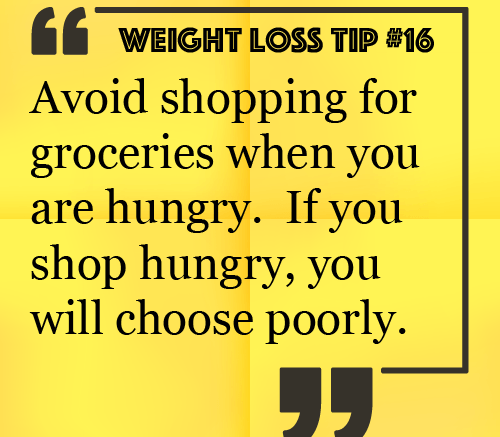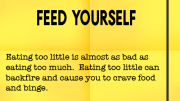Shopping while you are hungry will increase both the amount of calories and food you purchase.
We have all done it and regretted our decision before we even made it to the exit. You are on your way home from work, and you stop to buy groceries at your local market. You meant to buy just a few items, and now you’ve gone and done it. A few things soon grew into four bags of chips, sour cream and onion dip, three frozen pizzas, and two gallons of ice cream because you decided to shop on an empty stomach and of course all these items were on sale. You have just made a huge mistake.
Not that you need it, but there is research to back up the belief that shopping on an empty stomach is a terrible idea.
Research on shopping while hungry:
-
Grehlin induced appetite increases the amount you will pay for food. One study looked at subjects who were injected with ghrelin and allowed to shop on an eBay-like shop for food[1]. The subjects who has an empty stomach were willing to pay more for food than the ones who were satiated. Like I needed a study to tell me this, I have spent 100s of dollars on junk food when I shop hungry.
- Impulsivity and appetite have an interactive effect. A two-part study published in the International Journal of Obesity looked at the interaction between hunger and impulsivity and their effects on purchasing food[2]. The first part looked at 57 female subjects that were either hungry or satiated. This portion found that impulsivity resulted in more food purchases but only in those that were hungry. The second part looked at undergraduate students and confirmed the same results but with a higher junk food purchase rate.
- Shopping hungry increases amount and calorie content of your purchases. One last study from JAMA looked at just hunger and satiety and their effect on food purchasing[3]. Satiety was induced by feeding that group a snack before the shopping. The study was done in two parts with one being in a simulated grocery story and the last in a real grocery store. Both parts of the research revealed that non-satiated shoppers bought more food and the non-satiated group in the actual grocery store purchased more calorie dense foods.
Shopping on an empty stomach will not only affect what you buy but also how much you might spend on the poor choice you make. Impulsivity plays a part, but remember, grocery stores are smart. They have placed foods in particular locations and chosen signage wording and colors with one goal in mind, and that is to get you to purchase more calorie dense foods. Don’t fall for the tricks. Have a snack before you go to the grocery store or even better, go after you eat a full meal.








Leave a Reply